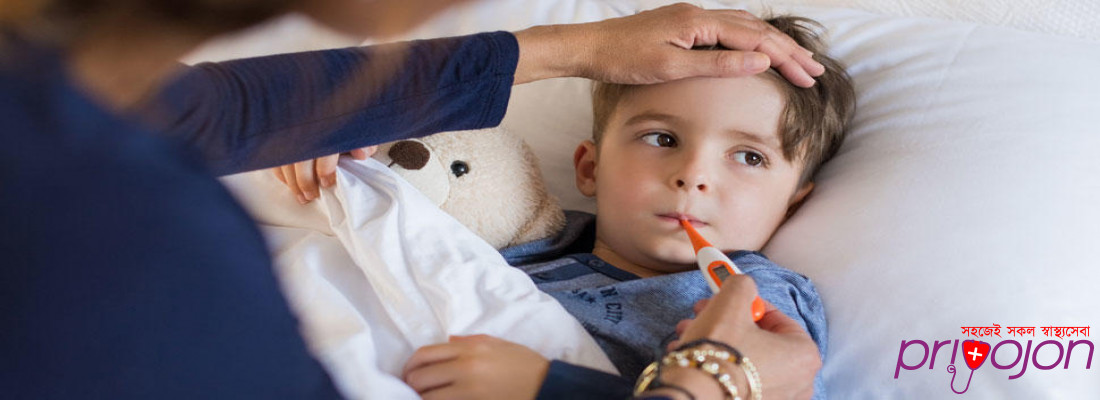
Overview
Medically reviewed by Dr. Rabeya Afroz Shomi
What’s the Risk?
Most of the people who’ve gotten COVID-19, the illness caused by the new coronavirus, are adults. Babies and children don’t seem to be at high risk. But it’s important to make sure they don’t spread the virus, and there are simple ways to do that: washing their hands often, cleaning your home often, keeping them away from sick people, and limiting or stopping in-person playdates. You’ll also want to reassure your child if they’re anxious about the changes in their routines, such as staying home from school or not seeing friends face-to-face.
Symptoms
When children and teens get sick with COVID-19, their symptoms appear to be milder than in adults. There have been no deaths and very few hospitalizations among people in the U.S. under the age of 19. Research shows that over 90% of children who get sick have very mild to moderate cold-like symptoms that include:
- Fever
- Runny nose
- Cough
- Vomiting
- Diarrhea
How to Protect Your Child
There is no vaccine to prevent COVID-19. It’s important to do everything you can to protect your child and the rest of your family from disease. Here are ways to cut their risk of illness:
Clean hands often. All kids should wash their hands after they go to the bathroom; after they sneeze, cough, or blow their nose; before they eat; and as soon as they enter the house. Soap and water are best. Make sure they lather the backs of their hands, between their fingers, and under their nails for at least 20 seconds (the same amount of time it takes to sing “Happy Birthday” two times). If soap and water are not available, use an alcohol-based hand sanitizer that contains at least 60% alcohol.
Stay home, and no playdates in person. For now, it’s important to limit close contact with others to reduce the spread of the disease. Stay home as much as possible, and avoid public places like shopping malls and movie theaters. Don’t have playdates or sleepovers. Your child may not seem sick, but they may still have the virus and can pass it to others.
Keep your kids away from others who are ill. If your child has cold-like symptoms, keep them home. Teach them to cough and sneeze into a tissue that they toss after each use, or into their arm or elbow instead of their hands.
Clean your home regularly. Disinfect high-touch surfaces like toilets, sinks, doorknobs, light switches, handles, smartphones, tablets, and TV remotes every day. You can use most regular household cleaners, or make your own by mixing a third of a cup of bleach with a gallon of water. If your child has a “lovey” or other favorite stuffed animal or plush item, wash it frequently at the highest possible temperature.
No face masks for healthy children. If your child is well and has no symptoms, there’s no need for them to wear a face mask. Masks aren’t proven to help protect them against disease.
What to Do if Your Child Gets Sick?
If your child has symptoms that you think might be COVID-19, call a doctor. They can tell you what to do and whether the doctor needs to see your child in person. Don’t just show up at the doctor’s office -- call first.
In the unlikely event that your child has COVID-19, they’ll likely stay at home to recover. There’s no specific treatment for the virus. Your child should rest and drink plenty of fluids. Talk to your doctor before giving your child an over-the-counter pain reliever that’s a non-steroidal anti-inflammatory (NSAID), such as ibuprofen or naproxen. Although there is no direct evidence that ibuprofen is harmful, some experts recommend against using it to treat COVID-19 due to the concern it may worsen symptoms. You can use acetaminophen instead.
To make sure the rest of the family doesn’t get sick:
Separate them. Your child shouldstay away from the other people in your home -- ideally, in a specific room and bathroom. They shouldn’t snuggle or kiss family pets, either. If your child has COVID-19, they should wear a face mask when they’re around other people. If that makes it harder for them to breathe, or they get upset, you can instead wear one when you’re with them.
Don’t share personal items with them. This includes things like drinking glasses, towels, and bedding.
Clean and disinfect constantly. If your sick child is old enough to clean high-touch areas like phones, doorknobs, and toilets themselves, let them. Otherwise, do it yourself but wear a mask.
Track their symptoms. Call your doctor right away if your child hastrouble breathing, has chest pressure or pain, or seems confused.
Keep them isolated even if they seem better. Your child can be around other people once they have had 3 full days of no fever, their symptoms have improved, and it’s been at least 7 days have since they got sick.
